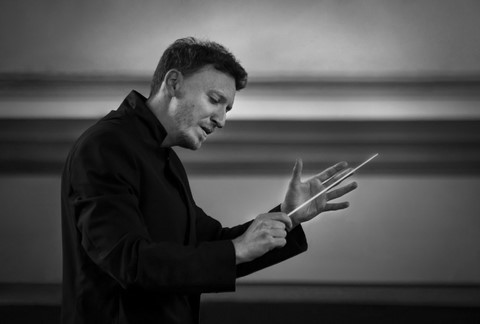Becoming a conductor (I)
University training

The first time I entered the old university building in Berlin I felt overwhelmed. I had made the step from a tiny Swabian village to a renowned music conservatory in Germany’s capital.
At this stage, I had only conducted amateur orchestras — except for a really bad audition one year earlier. I was curious about what professional conductor training would be like.
Practicing conducting without an orchestra
It is very difficult to practice conducting. Unlike a pianist, who can practice his instruments for hours per day, a conductor can’t practice in front of an orchestra. The cost of booking an entire orchestra is very high. And making the first steps in front of a large group can be very frustrating. With an inexperienced conductor, all sorts of disasters are likely to happen. The orchestra may fall apart, the tempo may become slower and slower. Achieving an unsatisfying result is a very tedious experience for the conductor and orchestra alike.
Most of the time in my conducting lessons at university, I conducted two pianos. It is a way to find out whether your beat is clear and understandable, yet conducting pianos has its shortcomings. A string player will react differently from a piano. A wind player needs to breathe and prepare the sound whereas the pianist can hit the key without much preparation.
Communication and efficient rehearsing
Once or twice per semester, I had the opportunity to conduct a professional chamber orchestra. When you work with an orchestra, a clear beat is obviously crucial. But what is equally important is the communication with the orchestra. Both verbally and non-verbally.
Conducting is more than just beating the music. It is “being” the music, with your entire body and face, and the baton as the device that focuses your energy.
A conductor is likely to achieve a respectable result by mastering non-verbal communication. Sometimes, however, it is necessary to talk in rehearsals. Both technical and musical details may have to be clarified verbally. It is important not to talk too much and say the right things 100% to the point. This is very difficult to learn. It can be good to sit in on rehearsals by experienced conductors and analyze their way of rehearsing.
A long journey
At university, I learned much about music and conducting. I practiced the piano a lot and studied many orchestral compositions and operas. But I didn’t manage to become confident in front of an orchestra. When I obtained my diploma, it was clear that my apprenticeship had just begun. Many years of assisting experienced conductors were to follow.
.